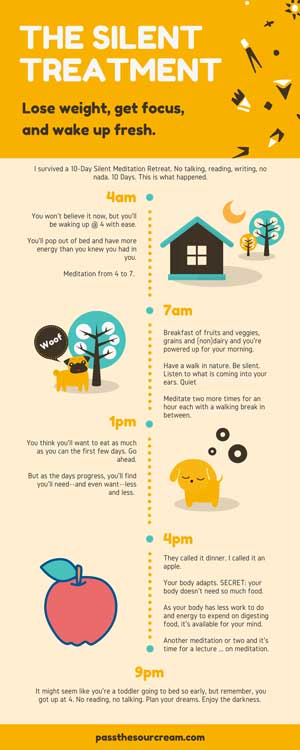
Study Every Single Day

- ESD: Beyond the Habit
- Today is a whole lot easier to see as yesterday than as tomorrow.
- Because “Every other day plus weekends is too complicated.”
- If you could practice more, would you?
- You do it even when you don’t want to do.
- You’ll never again say, “Oh well. Another day where I didn’t get it done.”
- This is how you live to be 103 years old.
- Study Every Single Day
- Every Single Day launches on October 17, 2017!
- Yes, you can force the Flow State. Here’s how.
- You know those things you never seem to get done? What if you could get them done?
- Meditation is the single thing that has helped me create Every Single Day for the past 1,698 days in a row.
- How do you know if you’re ready to make “The Leap”?
- This is what happens when you don’t take ESD.
- When you hear about how a person changed her life, it changes your life.
- When you’re a practitioner of Every Single Day, the “how” no longer matters.
- Sneak Peak: Every Single Day Table of Contents
- How has “Every Single Day” changed your life?
- The gift of the technique comes when we transcend it.
- Don’t have time? Here’s how to make time.
- The ESD Avatar — Who is the Every Single Day reader persona?
- The secret about that “big burst of creativity” you’re waiting for.
- It’s probably not a good idea to upload my book to Amazon while I’m in the train. Unless, of course …
- “Every Single Day” is available for pre-order on Amazon
- Mr. Pantser, meet Miss Plotter.
- 100 Reviews in 30 Days
- A prescription without a pill?
- From shame to lame to blame to aim to fame to game
- Can we become more creative?
- The Conundrum of Comfortable
- Every Single Day: Weight Loss
- If you think you need to do more, it might be time to do less.
- Very little stability in my life at the moment. Oh, yes, well, except for that. #creativelystable
- 2019 is going to be different. AKA: the mountain goat.
- Today I will do what others won’t, so tomorrow I can accomplish what others can’t.
- Ghost with a Toast
Homework every single day!? Yay! Let’s study every single day instead of only when there’s a test!
Cue soundtrack:
- Crickets.
- Screaming, joyful kids.
Hmm. Maybe soundtrack is screaming, joyful parents.
Wouldn’t it be wonderful if kids could understand or appreciate or care about (or any of those) something that we only appreciate later in life? Of course, this is nonsense because to understand something as an adult defines you as an adult. If you still think like a child, you may be, well, still a child.
What if I could clearly and simply and quickly explain how much easier it would be to study just a little bit every day rather than a lot on one day? What if I could prove that it would be:
- Easier,
- Faster,
- Shorter.
Not just one of those things, but all of those things? Wouldn’t that be awesome? I exclaim with quite the enthusiasm. But somewhere the importance of the meaning gets lost in translation. Did they not quite get the easier, faster and shorter bits? Should we throw in that the total amount of time studying will actually be less (and produce more) than if they cram the night before?
Rational & Logical
Oops, I forgot. That would all be rational and logical.
rational: having or exercising reason, sound judgment, or good sense
Yeah, there’s that.
What if I, Every Single Day (have you noticed a theme?), let them know what could be? Would it eventually sink in? I know they can hear. I know they pretend to not listen, but the words enter into the eardrums and they vibrate and there is translation from the audio waves to the brain and things happen in there. Just not on a reoccurring basis. In fact, they tend to happen once a week. Usually on Sunday nights.
If that wasn’t enough:
- Why Cramming Fails and Study Plans Succeed by Lisa League for Q Practice. By cramming, you will only retain 20% of the information.
- 5 Ways Kids Use Working Memory to Learn by Amanda Morin for Understood. Being able to solve math problems depends on a number of skills that build on one another like building blocks. The block at the bottom—the most important one in the stack—is the ability to recognize and reproduce patterns. It’s the foundation for the next block: seeing patterns in numbers in order to solve and remember basic math facts.
- How to improve attention problems and learning difficulties in kids by Gwen Dewar, Ph.D. for Parenting Science. We can’t equate working memory with overall intelligence. For instance, working memory isn’t the same thing as IQ.




























